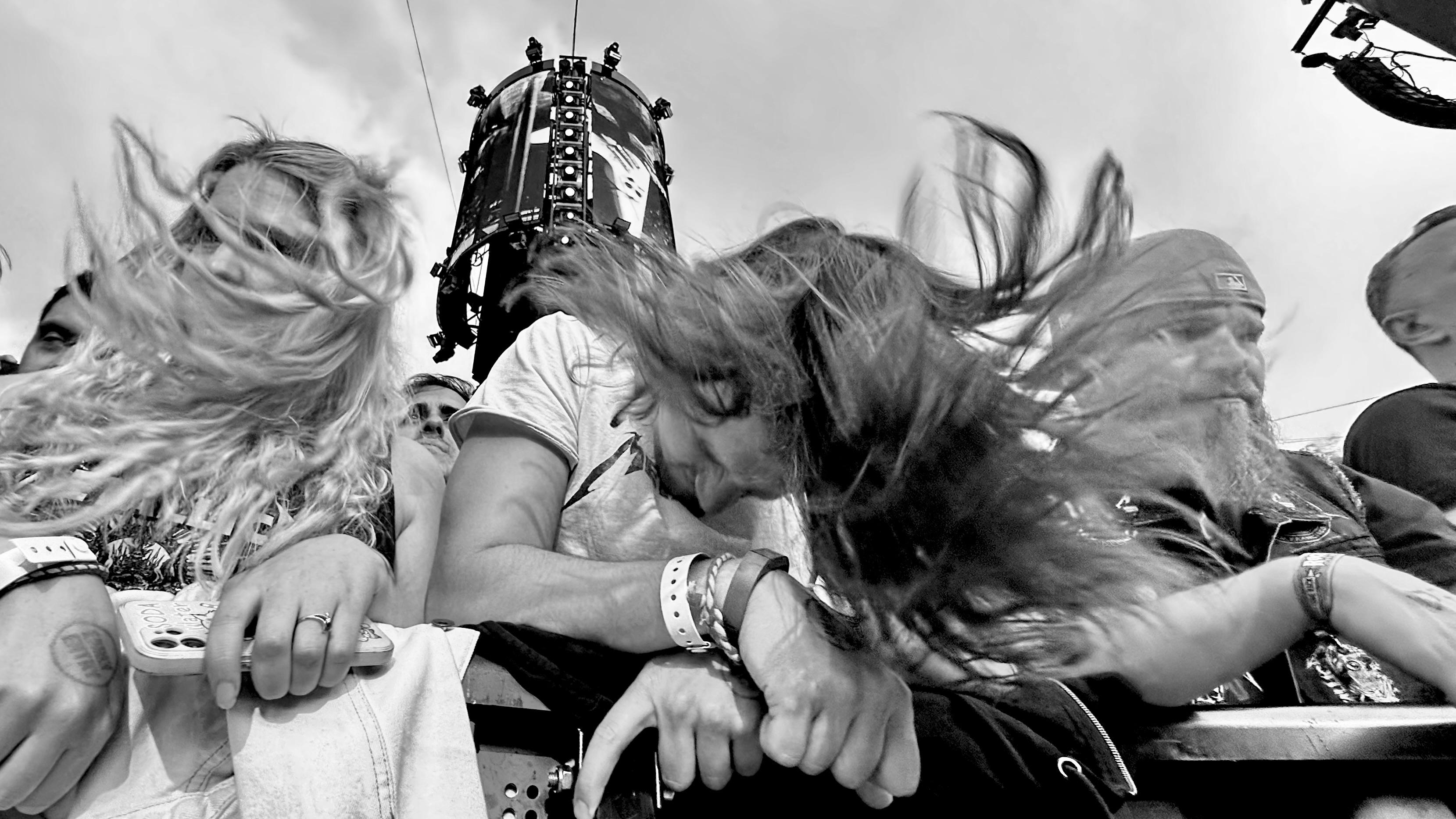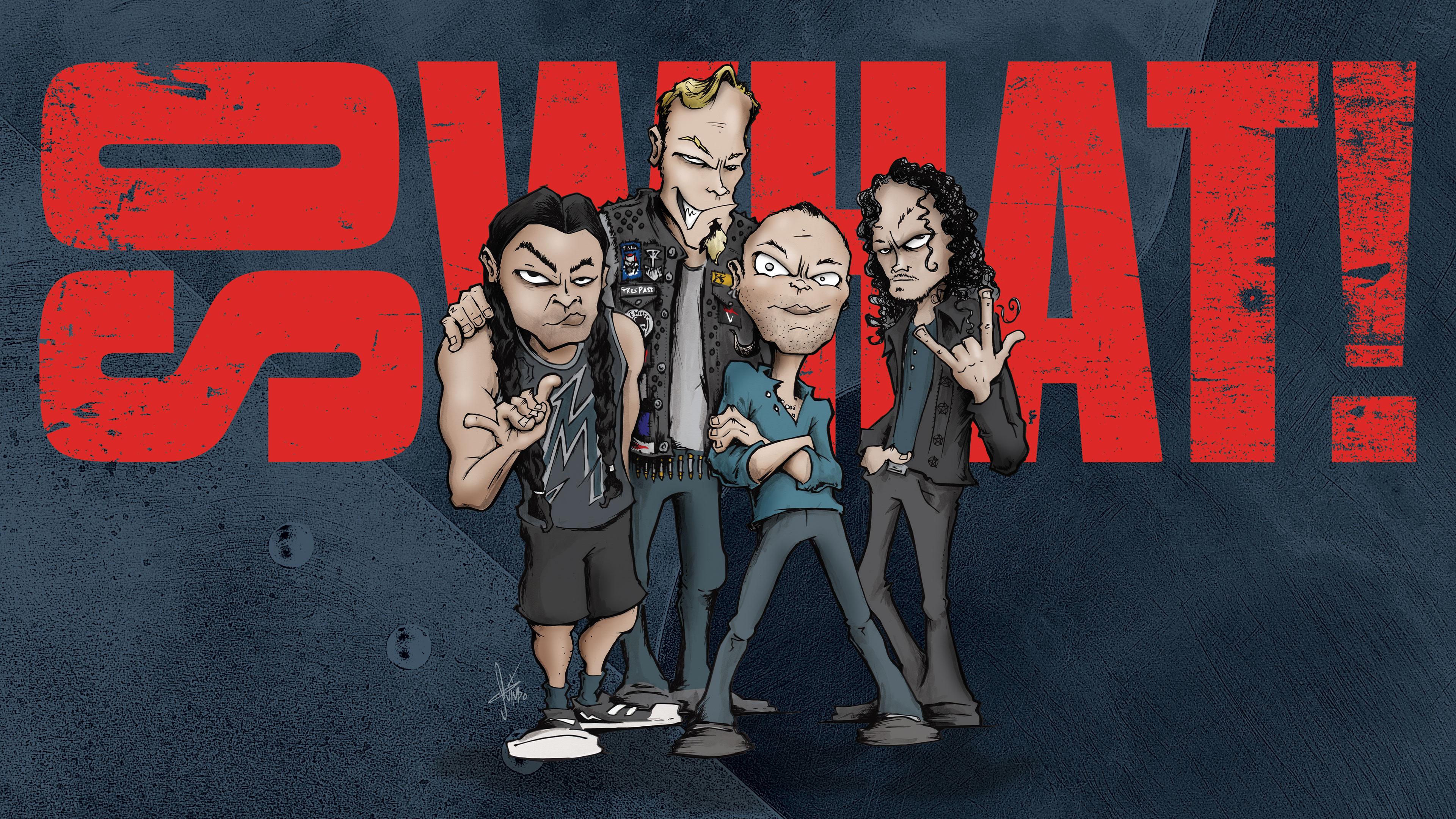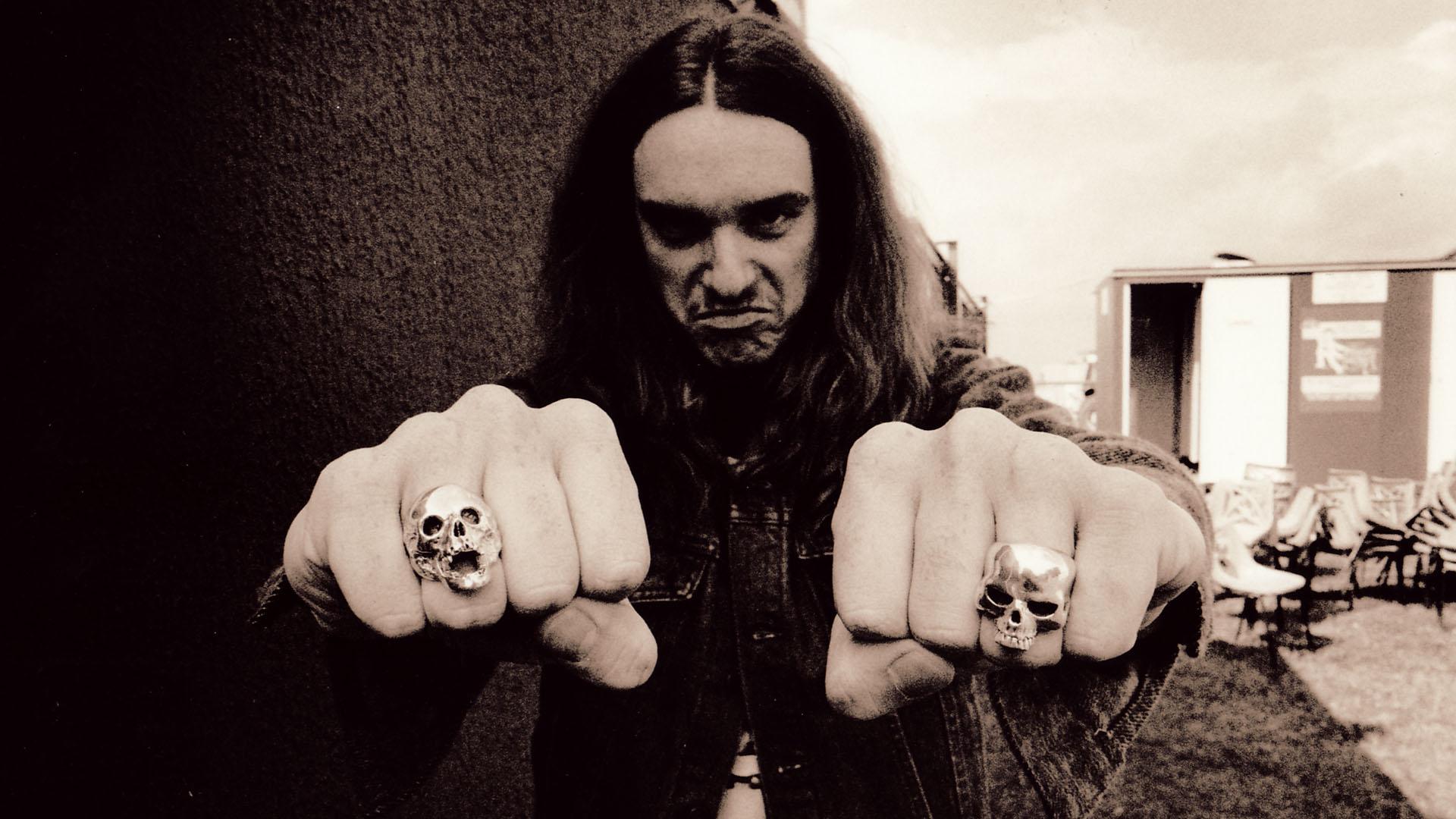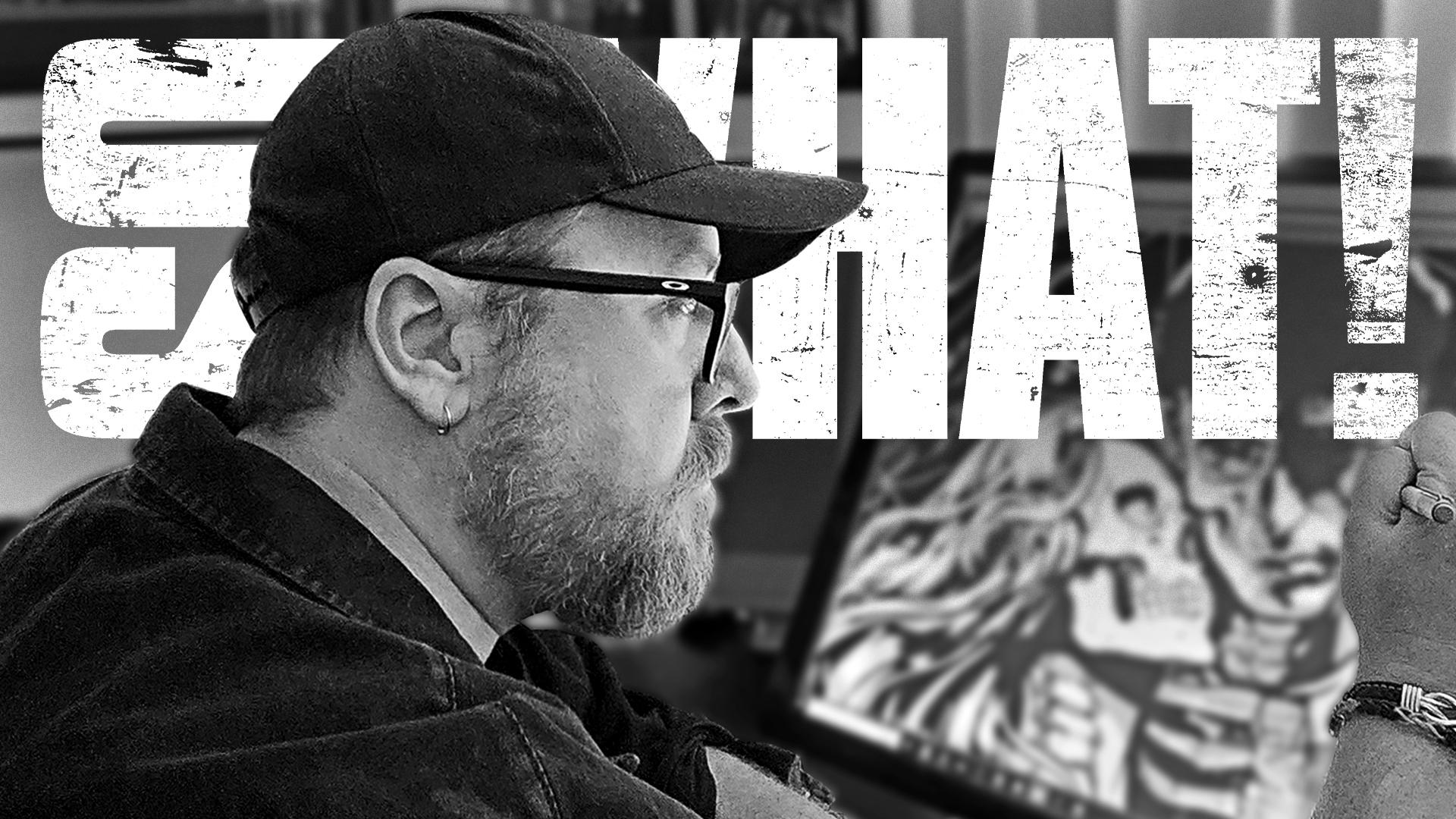
Feb 09, 2018
Secure Dealings - A Chat With Seth Fromberg
Seth Fromberg is Metallica’s Security Director, one of the most important jobs on WorldWired, especially in this day and age. He explains to Steffan Chirazi how he goes about his work.
Make no mistake, if you see Seth Fromberg before you speak with him, you will imagine that this man-mountain would think nothing of snapping your frame like a tooth-pick were you to so much as cough in the wrong manner around him. It takes most people one handshake before they realize that whilst this is most certainly a skill set Fromberg possesses (he won first place in the World Natural Powerlifting Federation Heavyweight Division Championship at the Pan American games in 2001), his working model is 180 degrees from such old-skool thuggery. Fromberg instead relies on the superior skills of warmth, personal interaction, and respect. His manner – warm, friendly, polite, welcoming – helps set the tempo for a WorldWired night’s work for everyone in the venue, and along with security partner Juan Ribald, it is not a stretch to suggest that Metallica consistently has the calmest, best run security operations on the road today. We spoke with Seth about his work last year during the Mexico City run.
Steffan Chirazi: Let’s just start by bringing our readers through how a day on tour starts for you and what your responsibilities are.
Seth Fromberg: I’ll tell you. Wake up in the morning – literally, it’s straight into the venue. Usually it’s an 8:00 AM start. Getting buses parked, getting the early security shift their notes and what they will do, and when the band comes in, all the procedures that are gonna happen during the day. There’s so much that goes into it. In the security world with the music business, there’s two types of security: you have your personal security, which is your bodyguard/assistant, and then you have your venue security which is a whole opposite realm of security in this world. The venue security is the go-between from the band to the local venue security. So for instance, if I’m gonna walk into Madison Square Garden, my job is to make sure that the hundreds of security people are all in place and doing what they’re supposed to do for the needs of our tour. So, there’s a lot of responsibility and there’s a lot that falls on you. People [tell] me all the time, “Seth, I want to do what you do.” The issue is it’s not a normal security job. You have to come up in the world of concert security, knowing how to run backstage, knowing how to run the stage, knowing how to run the crowd, knowing how to run the pits, knowing how to run the barricade, knowing how to run the doors, knowing emergency evacuation procedures. It goes on and on.
SC: And now let’s bring people back through where you started, where you got your feet wet so to speak. I think it’s interesting for people to get a grounding in where you learned those lessons and learned that stuff.
SF: Absolutely. So I am 45 years old right now. When I was 17 there was an ad in my local paper to work security for the Miami Dolphins at the Joe Robbie Stadium at the time. And I was thinking to myself, “I’m in high school, I’m gonna work security for the Dolphins, this is the most amazing thing ever.” So I called. You had to be 18, but I lied on my application. I was a yellow shirt event staff, working the games, working Miami Dolphin games, getting into the concerts and working the gates. You’re starting off as a low man on the totem pole, and I never in my wildest dreams thought that this would be a career. I mean literally, it was just a part time job that everybody thought was the coolest thing, and it just so happened that the stars aligned right and a few years into it I started meeting people, and it kinda just took off. People liked my style. People liked working with me. And it went from doing local venues to theaters to big arenas to stadiums. And now it’s been over 25 years in the business, and working for the biggest, baddest band in the whole world is crazy. It is absolutely crazy.
SC: What was that first band that took a chance on you, that thought, you know, we’re gonna give him a shot here?
SF: The first band that I ever worked for, I was 21 years old, and it was Luther Campbell and 2 Live Crew, the rap group. I’m the only white guy in the whole crew, okay? And they loved it because I didn’t care. I was just doing everything and anything to make it work. It was crazy, girls everywhere, crazy rappers everywhere with smoking and drinking. It was really insane.
SC: I’m gonna take a guess that your mental computer was working on overdrive and you were watching everything. You were seeing how things are done. You were taking it in. You were seeing what you wanted to be in terms of behavior. I don’t expect you were the guy who was in the party.
SF: Oh, absolutely. So, when I started in the business in the late ’80s, early ’90s, most security guys were big thugs. You were allowed to, you know, beat people up. It was almost like a get out of jail free card to do what you want[ed] to people to impose your will on them. And to be honest with you, it kinda was like that in the beginning. That’s what you did. You know, if somebody messed up, you know, you taught ’em a lesson. But the truth is, you learn that all these fans that you’re dealing with, they’re somebody’s little brother, they’re somebody’s little sister...cousin, and would you want them to be treated that way? It took a while to realize this because it’s experience; it’s life experience on how to treat people.
One main, main thing that happened in my life was [when] I was working for Luther Campbell. I was about 23 years old and we were working at a club that we would frequent sometimes. Somebody was trying to get into a room that they weren’t supposed to, that I was guarding, and instead of me kinda handling it with my mouth and my brain, I decided to put my hands on them and physically remove them, which ended up [with] them getting a broken nose, okay? Could I have handled the situation different[ly]? Yes. But what happened from that instance was that person, I found out about a month later, was waiting outside for me with a gun. I found this out by a friend of mine [who] went to another friend of mine and said, “Hey, you need to get in touch with Seth because something happened that he needs to know about.” And my friend called me up and said, “You need to call this guy.” I called this guy and he said, “Did something happen about a month ago where a guy at this one club tried to get into a room and instead of trying to talk, you physically put your hands on him and physically removed him before you actually had to?” And I said yes. He said, “I just want to let you know that was a main gang member and he was waiting outside for you with a gun, waiting for you to come out of that club and he was going to kill you. To be honest, I walked up and I saw him because I know the guy. And he said, ‘I’m gonna kill that white bouncer, that white security guy who works for Luther.’ ” And he’s like, “Brother, please, I know him. His name is Seth, and please...” He basically talked him out of shooting me. That’s a true story, and it literally changed my whole demeanor.
I really had to rethink how I’m supposed to handle this. Do I get out of the business? Because this is not gonna work. And pretty much from that day on, I changed. And then when I changed, the local security with [Luther] at the time saw my change and saw that I wouldn’t do the things that they were doing to the people, [so] I ended up getting fired from them. It was the best thing that ever happened to me, because it put me on a new road with security and knowing how to treat people. That’s where it all comes from, you know, you treat everybody like they’re your little brothers and sisters. And that’s what I explain to everyone around the world, every venue I go into. That is your little brother and that is your little sister. You treat ’em as such because that could be your little brother. How would you want somebody to treat them at a show? And that’s how I go about it. That’s how it has been since then, literally 21 years ago.
SC: I would suspect that 98 percent of the time you get very positive responses from the public and whomever. But I’m sure there’s the two percent of the time where someone feels they’re the big guy in the room, and they want to take you down. And you just deal with them in the same way, am I correct?
SF: Absolutely. First off, when you treat someone with respect, 99.9 percent of the time they’re gonna respect you back. Because if you’re a big guy and you’re super, super respectful, they feel that. And they’re like, “Wait a minute, this guy’s a super big guy and he could really impose his will on me but he’s being so nice to me.” Even if somebody’s drunk, they feel you. They feel what I’m telling them. I never put my hands on someone unless I am actually being assaulted. The last thing I ever do is put my hands on anyone. I use my mouth and my brain and my heart, and I treat them like they’re a family member. I swear to you, that’s exactly how I do it, man, and literally, I never, ever really have to put my hands on anyone.
SC: I’ve seen the venue meetings that you hold. I have to say they are some of the most clearly articulated, positive spirited security meetings I’ve seen, and the subsequent thing that I always notice is that the venue security at Metallica shows these days always seems to be a little cooler with stage divers or moshers or whatever. Do you think they get it, or is it a new thing for them to think about?
SF: No, they get it. It’s been happening over the past 15 years. It’s been changing. I tell the security that are in the barricade, that are dealing with crowd surfers and moshing, that the band is always watching. If they see security, if they see one of you security guys put your hands on a fan and disrespect them in any way, they’re gonna stop the show and they’re gonna remove the security guy. You’re gonna get embarrassed and you’ll probably get fired. So, when I have my security meetings, every show, it’s always, “Treat these people like they’re your brothers and sisters. The band is always watching. They will stop the show and throw you out before they throw any of their fans out.” So you better make sure that if you’re having a bad day, you better go on the popcorn stand and guard the popcorn stand instead of guarding the kids. Because what’s gonna happen is not good. It’s been a process that over time, and especially [with] cellphone and video, there’s a lot of lawsuits. So, there’s a lot of things that have developed over the past 15 years of “I don’t want to get sued.”
SC: It’s made it easier.
SF: It’s made it a ton easier.
SC: Interesting.
SF: And that’s a big thing. People get it. They don’t want to get in trouble. You don’t want to put your hands on anybody. Again, it started as “caveman style” security and it’s developed into “be nice, don’t be that guy.”
SC: It’s developed into safety for people.
SF: Safety first, treating the fans like they’re your family. That’s how it works, and that’s the only way it works now. It can’t work any other way. And I will not work [any other way]. If there’s a guy that I come across who gives me his resume and he says, “I’ve been doing this for 30 years and…” dadadadada, and he’s not cool and he has some kind of attitude, I will never use that person. I want a person with a great attitude. I want a person who is friendly, smiling, talking to people. That is what we want nowadays. We don’t want any of the “big thug” and the security with the scowl on his face – doesn’t work anymore. Nobody wants it.
SC: Do you prefer venue security to personal security? And tell folks the difference.
SF: I’m a venue guy at heart. I’ve been doing this in the venues since 1989. Personal security is 24 hours a day, seven days a week. There’s no days off. Venue security, you’re working the venue, you’re working the show day, and then you have your days off. I like having a couple days off, which is always nice. Personal security is good, but with venue you’re dealing with a lot more people. There’s a lot more things involved. So I’m a venue guy at heart. Do I do personal security? Absolutely, but I’m a venue guy. It’s what I do, it’s what I’ve been doing, and it’s really what I’m good at. I think I’m good at it all because of all the experience I’ve had and all the changes I’ve made in my life to become a better person. And that shows on the fans, with my co-workers and the people I work with like yourself. You’re [also] representing the band and what you do is a reflection on them.
SC: Let’s close off with just a couple of reflections. What are the easiest cities that you work in? How does local security staff differ from place to place?
SF: So, it’s all about the person next to you. I am only as good as the person next to me. I could be the greatest security guy in the whole world, which I’m not, but even if I was… if the person next to me fails, I’m dead. It’s almost like going into war. If I’m going into war with you and you don’t have my back, I’m gonna get a bullet in the head because you don’t have my back. So, when I’m backstage at a show, if that 50 or 60-year-old guy or 20-year-old kid at the backstage door lets someone in that’s not supposed to be backstage, even though he did it, it’s my fault. It’s on me. So, it’s always going around to all the positions, making sure everybody is aware of the pass sheets and the passes and the rules, making sure that everybody is on top of everything, being friendly, asking them if they need water, asking them if they need something to eat even, and treating them with respect. Because the more you treat the people you work with – your security around you – with respect… they’re gonna want to kill for you. They’re gonna want to go to war for you. When you go to your Germanys and your Englands, they are so good at what they do, they take it really serious[ly] and they’re really, really good at what they do. It makes my life so much easier.
At the end of the day, it always comes across because wherever I am, whether you’re the janitor or whether you’re James himself, I treat everyone the same. I treat the guy who takes out the trash just as good as I treat James, the singer of Metallica, and that’s everything. People feel you when you speak to them. I used to be that guy. I was that guy on that back gate, I was the guy standing on the elevator, I was the guy standing on the back door. That was me. I’m you. We’re together, we’re a team. I can’t do it without you guys; I’m one guy. If I don’t have you guys as my back, I’m done, I’m toast. I need you. And I swear, I tell them this, all of them, anywhere in the world I go. So yes, no matter if I’m in Germany or in China, they see my smile, I put my arm around the local security guys and they really want to do such a good job for you. You get a thousand percent out of them and it makes my job that much easier.
And with that, Seth says thank you more times than most interviewees and sets off for another venue meeting, an extra one, making sure that all the pieces are in place as he likes them to be.
Along with Tom Robb and Juan Ribald, Seth runs the security firm STS Global Security, which you can read about here: http://www.stsglobalsecurity.c...
more...
-
Band
-
July 23, 2024
Who My Cliff Burton Was
read moreSo What!'s Steffan Chirazi looks back at his personal relationship with Cliff Burton.Band -
April 15, 2024
Andrew Cremeans' 72 Seasons
read moreAndrew Cremeans has created a haunting new piece for the 72 Seasons poster series. Here, he explains its motivations and meanings, plus what his own 72 seasons were like.Other Artists


